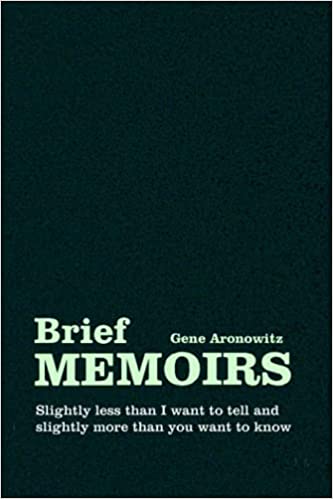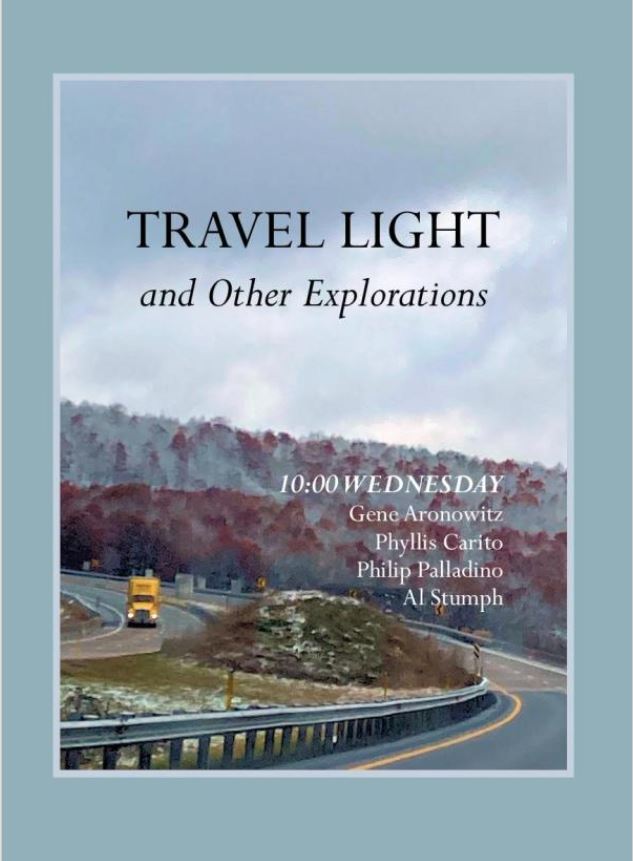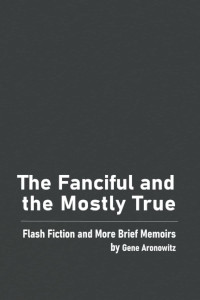My Mind, my Body and its Prostate
By Gene Aronowitz
“Your PSA is elevated,” my primary physician said over the phone. “We need to draw more blood for another analysis.”
The following week, after he received the results of the repeated test, he called again. “I wouldn’t worry too much about it yet. Could just be an enlarged prostate. That often happens.” And then, he referred me for a biopsy.”
His third call was terrifying. “The result of the biopsy is “positive,” he said, a contronym I will never get used to. I knew what “positive” meant.
“How bad?”
“Your Gleason score is 8. That means, there’s fast-growing cancer inside you.”
“OK, I get it,” I said, and with the receiver cupped in my other hand, I sat down, my heart pounding, my pulse rate accelerating. When people said the word cancer in 1998, they lowered their voices, sometimes whispered. When I finally tried to put the receiver down on its base, it slipped from my hand. My wife overheard the call and said, “We’ll do whatever we need to do.”
I began to deal with my problem methodologically, a process I had mastered in my problem-solving work-life and that did help to calm me down. I read everything I could find that was understandable to me about the illness: what caused it; how it had a high cure rate; what kind of convalescence I could expect; how relatively few people died from it and, in fact, how the onset of cancer for older people was of little concern because they would die of old age before the prostate cancer did them in. But I was not old, only 60, and had to take care of myself.
I worried about how I was going to inform my family and friends. I had always felt uncomfortable when people I knew told me about their own serious illness. I didn’t know how to respond. How are you feeling seemed too intrusive? Oh my God seemed absurdly panicky. It will all work out was something I could not possibly know. I knew it would be inappropriate to be a cheerleader and certainly worse to be a defeatist. I was never entirely happy with my responses. My own sense of inadequacy was probably being projected on others and I assumed that they, too, would share my difficulty.
I didn’t want to alarm my young-adult children but I knew that worry was inevitable. What I hated most was putting them into the awkward position of having to reply. One of my daughters reacted with what sounded like anguish. My face contorted hearing her and, for a moment, I regretted making the call.
I could tell that most friends and other relatives were, in fact, uncomfortable. Many did say “How are you feeling?” My usual response was the very clichéd “as well as can be expected.” I grew tired of saying that but could not come up with anything better. Some compared my prostate cancer with more lethal conditions, implying that I was lucky. Lucky was not one of the words that popped up as I thought about what was happening to me.
“Happening to me” was how I viewed the situation initially, but not for long. I never wondered what I might have done to deserve this awful disease. Many people say or think that but, as a student of A Course in Miracles, I did not believe in divine retribution, a belief that underlies that statement.
Alternatively, as a mental health professional, I was convinced that physical illnesses are not all biologically based. I knew a lot about what was called psychosomatic illness (now commonly called somatic symptom disorder) in which some physical diseases are believed to have a mental component. I believed that the mind could, in fact, create physical illness and, by implication, I believed the mind could rid the body of whatever was ailing it. Even though I thought that was possible, I had no idea how this process worked.
I gave serious consideration to treating my prostate cancer holistically. But then doubt took over. My belief in mind-body interaction notwithstanding, I had no confidence that meditation, guided imagery, biofeedback, lifestyle changes or similar practices would have any effect on the DNA in the cells of my prostate. Alternatively, I believed that traditional medicine had a high rate of success with prostate cancer. It was one thing to try alternative approaches with back pain or stomach ulcers, but cancer, I thought, was nothing to fuck around with.
One of my daughters worked for a noted pharmaceutical firm as a hospital “rep,” an employee who calls on physicians to encourage them to use the medications they represent. I asked her if she could check around to get some recommendations. She asked a fellow rep who worked with urology physicians in Manhattan. The doctor he recommended was considered by many to be one of the best if not the best urological surgeons in the city. I had ruled out radiation therapy thinking that, because of my work, I would be too busy to take the one-hour trip from southern Brooklyn to and from upper Manhattan for a prolonged period. I called the recommended doctor and set up an appointment.
Further examination disclosed that I also had a pouch on my bladder and several hernias, probably from all the heavy lifting required during the restoration of our 104-year-old three-story brownstone. My surgeon could take care of all three problems at the same time, but, he said, the operation should take place as soon as possible because of my high Gleason score.
I told him I couldn’t do it right away because my daughter – the hospital rep – was getting married within the month. I had learned that the operation can cause urinary incontinence, at least temporarily, and, as I put it, "I'm not about to walk her down the aisle or have a father-daughter dance wearing smelly old Depends." The surgery was scheduled for nine days after the wedding.
In the meantime, I had to go to the hospital to donate blood which would be available to me in case I needed a transfusion during the operation. I asked the phlebotomist to take a little extra blood so I could get another PSA test. She did and, this time, the results came back normal. I also had an appointment with my primary care physician to get a pre-op clearance, used to assure the hospital that I was healthy enough for surgery. I told him about my normal PSA and asked him to repeat the test. It too came back normal. I concluded that the same mind that had created the cancer had also gotten rid of it. I knew that I had not done anything consciously to control my illness but I was convinced I was cancer-free.
I was smiling when I told my surgeon about the normal PSA tests. “Look, Gene,” he said, “PSAs are good indicators, a good starting point, but not very accurate. You’re seriously ill. Take my word for it.”
“But still,” I countered, “maybe we should postpone the operation and do another PSA in a few weeks.
“Listen,” he said, speaking a little louder, “let’s do the operation on the bladder pouch and the hernias. When you’re opened up, we’ll do a more thorough biopsy. If you’re clear, I’ll sew you up and that will be that.”
“But,” I said, then hesitated, and then said, “OK, OK.”
At the hospital, I was called up for registration and the attendant said, “I can’t believe how calm you are. Most people coming for an operation like this are really upset.”
I shrugged my shoulders and said, “I’m very well prepared.” That was true. I had confidence in the surgeon and the hospital staff and was very familiar with what would take place on the operating table and in the days and weeks to follow. I was adept at and was using relaxation exercises at that moment, breathing deeply and regularly. I could focus on the fact that I was about to have an operation without making wild and debilitating interpretations about that fact, particularly imagining what could go wrong. Mine was an acquired calmness and I did whatever I could to maintain it.
After I was anesthetized, the surgeon took more tissue from my prostate for the biopsy. In the meantime, he dealt with the other two problems. When the biopsy results came back – I was asleep at the time – it showed that the cancer was much worse than originally thought. Much worse! The radical prostatectomy went forward. When I woke up, my prostate was gone, my cancer was gone, and gone also was my incredulous belief that my mind had somehow eradicated my malignancy.


